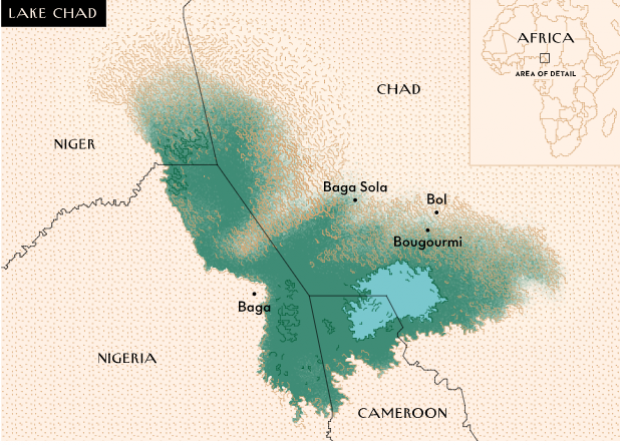UNESCO, NWRI build capacity to tackle Lake Chad crisis
Restoring normalcy to the Lake Chad Basin after water level has been revitalised will require about 10 years, the Executive Director of the National Water Resources Institute, Prof. Emmanuel Adanu, said yesterday. Speaking in Abuja during a capacity building workshop on water diplomacy and peaceful management of natural resources, he said the Lake Chad crisis […]

Restoring normalcy to the Lake Chad Basin after water level has been revitalised will require about 10 years, the Executive Director of the National Water Resources Institute, Prof. Emmanuel Adanu, said yesterday.
Speaking in Abuja during a capacity building workshop on water diplomacy and peaceful management of natural resources, he said the Lake Chad crisis was not only affecting Nigeria, but had a global ripple effect.
He said: “If we succeed in taking water to Lake Chad even tomorrow the effect will still be there. To bring back the environment to the condition near to what it was, is very difficult.
He added that “Even if we have all the resources, the diplomacy, peace that can bring the water to Lake Chad it will take us between nine and 10 years.”
He said the national workshop is organised to build the capacity of decision/policy makers, water managers and programme officers as part of efforts to achieve a peaceful lake he explains.
The workshop which spans August 2oth to 21st is tagged ‘Capacity building on water diplomacy and peaceful management of natural resources of the lake chad basin through the potential conflict to cooperation potential (PCCP) approach’.
The Director & Representative of UNESCO multi-sectoral Regional office, Abuja, Dr. Ydo Yao who was represented by Simone Grego, the Regional Advisor Natural Sciences – UNESCO said that the topic of the workshop centres on how to improve the management of water resources in a trans-boundary context.
He said the project BIOPALT which refers to ‘Applying the model of trans-boundary biosphere reserves and world heritage sites to promote peace in the lake chad basin by the sustainable management of its natural resources’ tries to address the issues that are affecting lake chad by improving how the natural resources and the cultural resources are managed in a transboundary context.
He explained that the capacity building project started in 2018.
Lake Chad is surrounded by Chad, Cameroon, Niger, and Nigeria.
